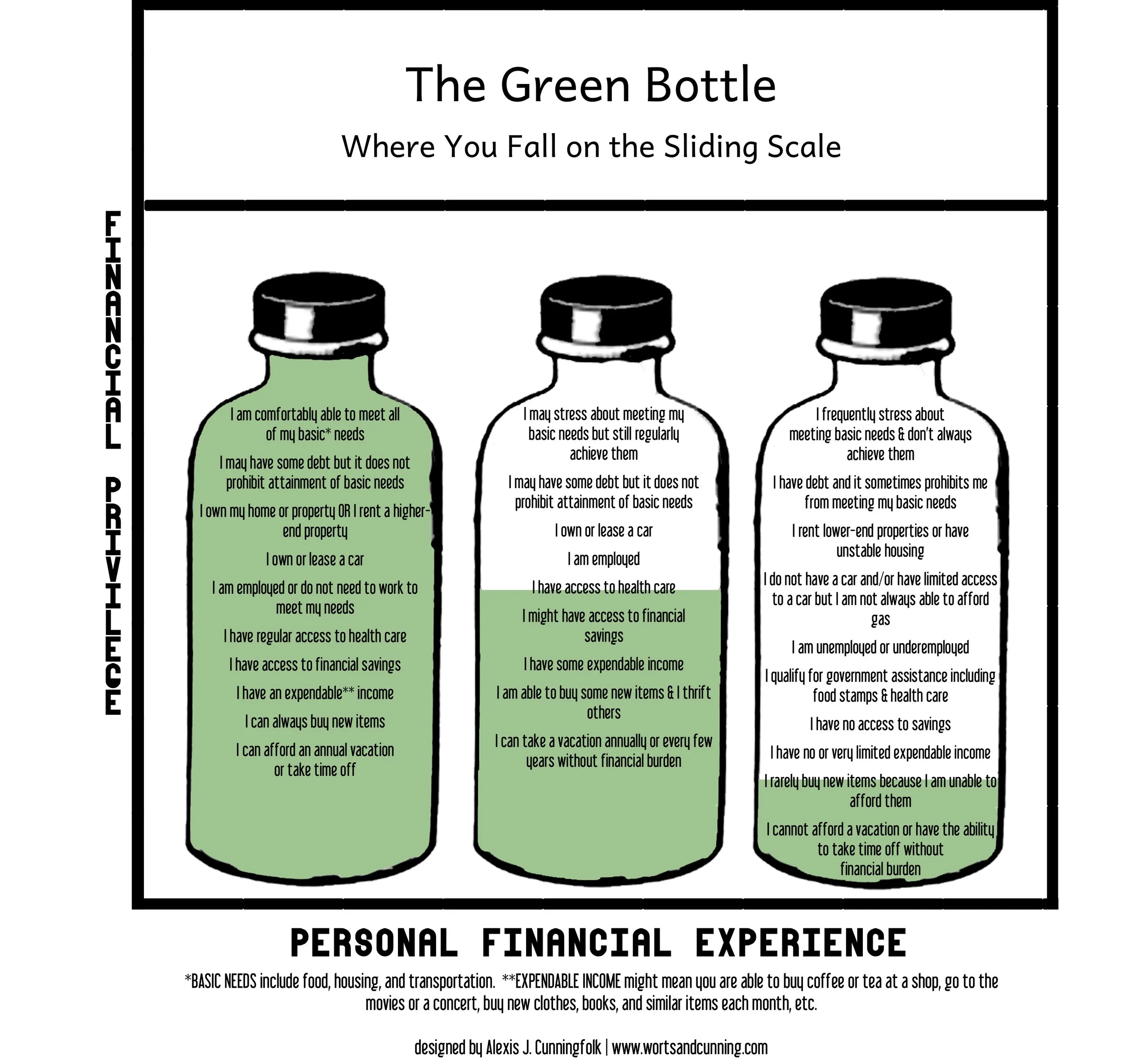Fees & Sliding Scale
I believe therapy should not be a luxury. Healing and care are human needs, and everyone deserves access to them regardless of income, employment, or circumstance. Unfortunately, we live in a capitalist system where therapy is often priced beyond what many people can afford. Sliding scale fees are one way to resist that — by acknowledging economic inequality and offering care in a way that is more accessible and just.
What is a sliding scale?
A sliding scale means there isn’t one fixed fee for a session. Instead, there is a range of fees, and you choose what you are able to pay within that range. This is based on your own honest reflection of your financial reality.
Sliding scales recognize that:
People do not all have the same financial resources.
The cost of living, disability, neurodivergence, and systemic barriers (racism, ableism, sexism, classism) affect people’s ability to access care.
Healing should not be reserved only for those with financial privilege.
In other words, sliding scale is about community care: those with greater access to resources help make it possible for others to receive support too.
**Note - sliding scale is for folks without insurance coverage.**
How it works
I use the Green Bottle model, created by Alexis J. Cunningfolk, as a way to make this process clearer and more transparent. Instead of guessing, you can think about which “bottle” best describes your financial situation:
Top of the scale (left bottle) - $135 per session
I am comfortably able to meet all of my basic* needs
I may have some debt but it does not prohibit attainment of basic needs
I own my home or property OR I rent a higher-end property
I own or lease a car
I am employed or do not need to work to meet my needs
I have regular access to health care
I have access to financial savings
I have an expendable** income
I can always buy new items
I can afford an annual vacation or take time off
Middle of the scale (middle bottle) - $115 per session
I may stress about meeting my basic needs but still regularly achieve them
I may have some debt but it does not prohibit attainment of basic needs
I own or lease a car
I am employed
I have access to health care
I might have access to financial savings
I have some expendable income
I am able to buy some new items & I thrift others
I can take a vacation annually or every few years without financial burden
Bottom of the scale (right bottle) - $95 per session
I frequently stress about meeting basic needs & don’t always achieve them
I have debt and it sometimes prohibits me from meeting my basic needs
I rent lower-end properties or have unstable housing
I do not have a car and/or have limited access to a car but I am not always able to afford gas
I am unemployed or underemployed
I qualify for government assistance including food stamps & health care
I have no access to savings
I have no or very limited expendable income
I rarely buy new items because I am unable to afford them
I cannot afford a vacation or have the ability to take time off without financial burden
Sliding scale is a way of redistributing resources in a system that often withholds care from those who need it most. It acknowledges that capitalism, ableism, and other systemic forces create barriers to access — and it offers a different model, one rooted in mutual care, equity, and trust.
You are invited to place yourself honestly within this range, knowing that whatever you choose, your healing is worthy of care.
If you are ready to book a session, or have questions about how this the fee scale works, you can reach out here to book a free consultation.
